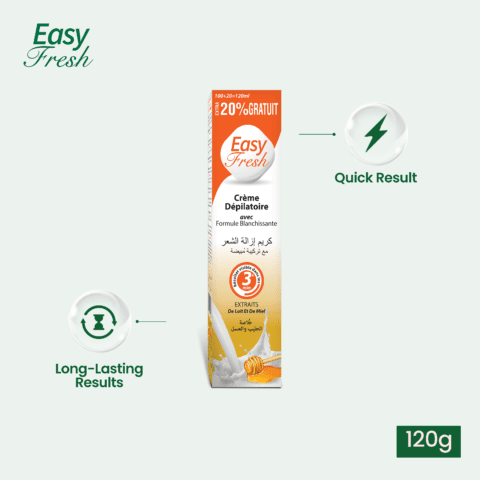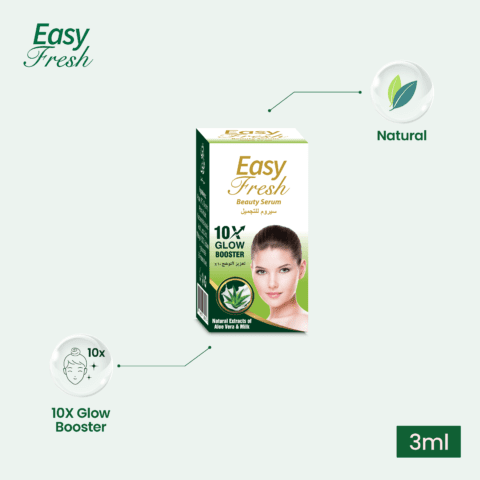Acne, a common skin condition that affects millions of people worldwide, can be frustrating and embarrassing. Whether you have an important event coming up or you simply want clear skin quickly, there are several effective strategies you can use to treat acne in a very short time. In this article, we’ll explore a range of solutions that target acne and help you achieve smoother, healthier skin fast.
Points to be Discussed
- Introduction
- Understanding Acne
- Quick Tips for Preventing Acne
- Immediate Actions for Acne Relief
- Over-the-Counter Treatments
- Natural Remedies for Rapid Acne Healing
- Diet and Hydration
- Skincare Routine for Acne Prone Skin
- Avoiding Common Mistakes
- Professional Treatment Options
- Lifestyle Factors and Acne
- Boosting Self-Confidence During Breakouts
- Dealing with Acne Scars
- The Role of Stress and Sleep
- Conclusion
- Frequently Asked Questions
Introduction
Dealing with acne can be challenging, especially when you need quick results. This article will provide you with practical steps and effective techniques to treat acne in a short period. From immediate relief measures to long-term strategies, we’ll cover various options to help you achieve clear skin and regain your confidence.
Understanding Acne
Acne is a skin condition characterized by the development of pimples, blackheads, and whiteheads. It occurs when hair follicles become clogged with oil and dead skin cells. While its exact cause can vary from person to person, factors such as hormonal changes, genetics, and certain medications can contribute to its onset.
Quick Tips for Preventing Acne
Preventing acne starts with maintaining a consistent skincare routine. Cleanse your face twice daily with a gentle cleanser and avoid over-washing, as it can strip your skin of natural oils and worsen the issue. Use non-comedogenic products and resist the urge to pop pimples, which can lead to infection and scarring.
Immediate Actions for Acne Relief
When you’re in need of rapid acne relief, there are a few steps you can take. Begin by cleansing your face thoroughly to remove excess oil and debris. Apply a spot treatment containing benzoyl peroxide or salicylic acid directly onto blemishes. These ingredients can help reduce inflammation and speed up the healing process.
Over-the-Counter Treatments
Over-the-counter acne treatments can be highly effective in treating mild to moderate acne. Look for products containing ingredients like benzoyl peroxide, salicylic acid, or sulfur. These ingredients target bacteria, exfoliate the skin, and unclog pores, respectively. Remember to follow the instructions on the product label and gradually introduce new products to avoid irritation.
Natural Remedies for Rapid Acne Healing
Natural remedies can also provide relief from acne. Tea tree oil, known for its antibacterial properties, can be applied topically to reduce inflammation. Aloe vera gel soothes the skin and promotes healing, while honey and cinnamon have antimicrobial properties that can combat acne-causing bacteria.
Diet and Hydration
Your diet plays a significant role in your skin’s health. Consuming a balanced diet rich in fruits, vegetables, and whole grains can help reduce inflammation and support clear skin. Additionally, staying hydrated by drinking plenty of water throughout the day aids in flushing out toxins and maintaining skin elasticity.
Skincare Routine for Acne Prone Skin
Establishing a suitable skincare routine is crucial for managing acne-prone skin. Cleanse, exfoliate, and moisturize regularly. Use products with ingredients like niacinamide and hyaluronic acid to control oil production and maintain hydration. Sunscreen is essential to prevent UV damage that can worsen acne.
Avoiding Common Mistakes
In your quest for quick acne treatment, avoid common mistakes like using harsh scrubs or skipping moisturizer. Harsh products can irritate the skin, while skipping moisturizer can lead to overproduction of oil. Strive for a balanced approach that addresses both cleansing and hydrating the skin.
Professional Treatment Options
For more severe cases of acne, consulting a dermatologist is recommended. They can prescribe topical or oral medications tailored to your specific needs. Procedures like chemical peels, microdermabrasion, and laser therapy can provide rapid improvement by targeting deeper layers of the skin.
Lifestyle Factors and Acne
Lifestyle factors such as stress and lack of sleep can impact the severity of acne. Managing stress through relaxation techniques and ensuring adequate sleep can contribute to better skin health. Engaging in regular physical activity also promotes blood circulation, which aids in skin rejuvenation.
Boosting Self-Confidence During Breakouts
Dealing with acne can take a toll on your self-esteem. Focus on your positive qualities and engage in activities that make you feel confident. Remember that everyone experiences breakouts at some point, and your worth is not determined by the condition of your skin.
Dealing with Acne Scars
If acne leaves behind scars, there are treatments available to minimize their appearance. Options include laser therapy, microneedling, and chemical peels. These treatments encourage collagen production and promote skin regeneration, gradually reducing the visibility of scars.
The Role of Stress and Sleep
Stress and sleep play interconnected roles in acne management. High stress levels can trigger hormonal changes that contribute to acne flare-ups. Prioritize stress-reduction techniques such as meditation, yoga, and deep breathing. Additionally, aim for 7-9 hours of quality sleep each night to support skin repair and rejuvenation.
Conclusion
Treating acne quickly requires a multifaceted approach that addresses various factors contributing to its development. By following a consistent skincare routine, making dietary adjustments, and considering professional treatments if necessary, you can achieve clear skin in a short time. Remember that patience and persistence are key to long-term success in managing acne.
Frequently Asked Questions
- Can certain foods worsen acne?
- While there isn’t a one-size-fits-all answer, some individuals may find that dairy, high-glycemic foods, and sugary snacks can contribute to acne breakouts.
- Is it okay to pop pimples?
- Popping pimples can lead to scarring and infection. It’s best to avoid this practice and opt for proper acne treatments instead.
- Can stress cause acne?
- Yes, stress can trigger hormonal changes that increase oil production and lead to acne flare-ups.
- How long does it take for acne scars to fade?
- The time it takes for acne scars to fade varies depending on the treatment method and individual healing factors. It may take several months to see noticeable improvement.
- Are natural remedies as effective as over-the-counter products?
- Natural remedies can provide relief for some individuals, but over-the-counter products with proven acne-fighting ingredients often yield faster and more consistent results.




Leave a comment
Your email address will not be published. Required fields are marked *